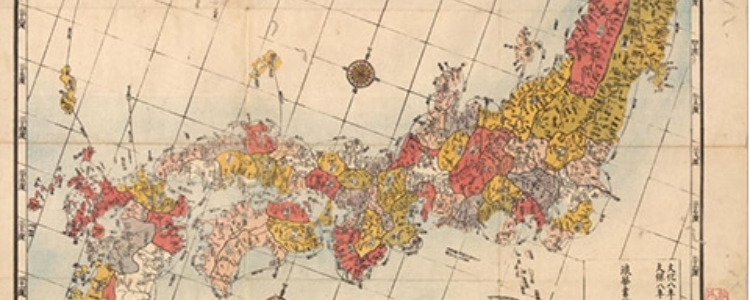- Activities
- Opening up cartographic studies: The case of Japan
Opening up cartographic studies: The case of Japan
Dinsdag 28 februari, 12.30-14.00 uur

Opening up cartographic studies to insights from Global History: The case of Japan
In an oft-quoted article, Bruno Latour illustrates his discussion of maps as ‘immutable mobiles’ with a description of the exchange between a Chinese and a French cartographer. Framing this example in terms of ‘differences between a savage geography and a civilized one’ ignores the richness of Asian cartographical production, reinforcing the bias towards a history of Eurocentric progress. In contrast, maps are being reassessed as a ‘discourse function’, corresponding to Mikhail Bakhtin’s concept of the dialogical nature of the world, reenacted every time we engage in conversation. The analysis of patterns of this reenactment in the case of maps has been called ‘process cartography.’
Dr Radu Leca is applying the above ideas to maps from the collection of Leiden University Libraries, which he is co-curating for the upcoming exhibition at Japan Museum SieboldHuis. Most of these maps belonged to Philipp Franz von Siebold (1796-1866), a medic and scholar who visited Japan and exchanged geographical knowledge by engaging with the East Asian practice of literati (ch. wenren, jp. bunjin) intellectual gatherings.
